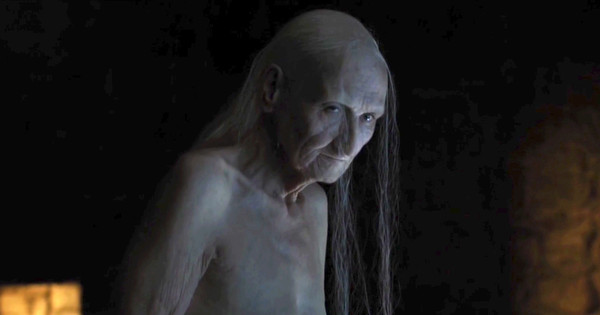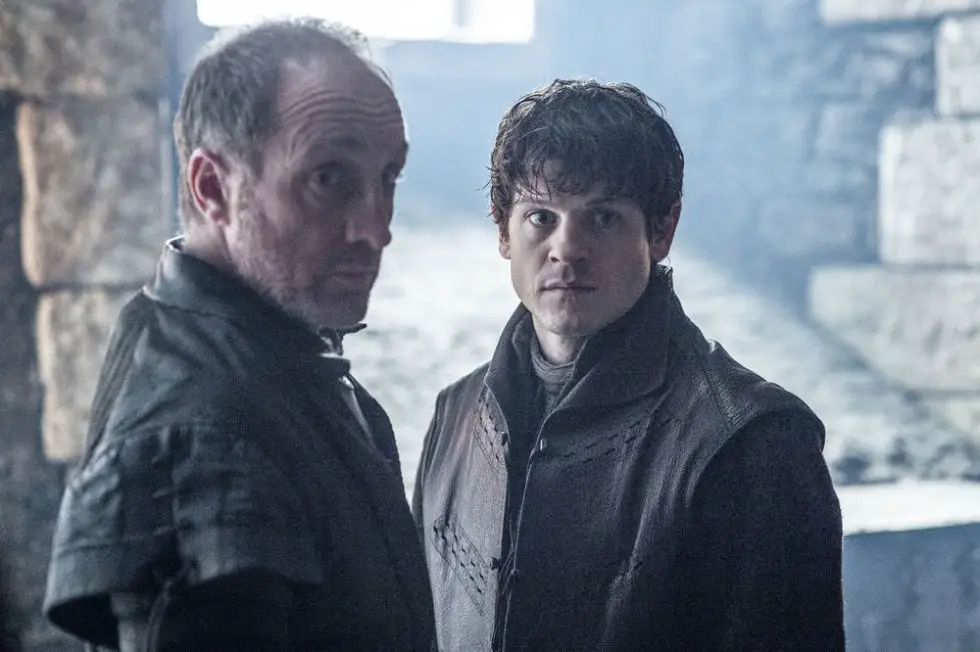The Historicity of “Game of Thrones”
The greatest irony of the show that critics have called “gratuitously” violent? Most of it is based on real historical events.
By Yasser Ali Nasser, Oxford University
We all love Game of Thrones—the violence, the cliffhangers, the world-building is all utterly engrossing—but deep down we can’t help but hate it a little, too.
All our favorite characters, the people fighting for the good of Westeros, the characters who came so close to finally taking down the Lannisters or the Boltons: one by one, they’ve all been killed. George R.R. Martin is truly a butcher like no other.
However, though Martin and the show’s producers love to torture their audience, the stories they tell are not entirely original.
 Martin’s Westeros and the world of “A Song of Ice and Fire” is a fantastic piece of world-building and helps to form one of the most compelling pieces of fantasy in the world. But, as the author himself revealed, his stories draw on some pretty high quality material themselves—history.
Martin’s Westeros and the world of “A Song of Ice and Fire” is a fantastic piece of world-building and helps to form one of the most compelling pieces of fantasy in the world. But, as the author himself revealed, his stories draw on some pretty high quality material themselves—history.
In fact, much of the basis of the series seems to draw from the Wars of the Roses era in British history. As is the case in Game of Thrones, the war revolved around deciding which family and faction was the rightful bearer of the throne, and needless to say things got pretty bloody.
The conflict’s roots were pretty complicated but at the heart of it all was the dispute between two houses—the Yorkists and the Lancasters, representing the North and South of England respectively. This is pretty analogous to the struggle between the Starks and the Lannisters, and indeed much like the Lannisters, the Lancasters were seen as ineffective, tyrannical rulers.
Martin draws on various different events, personas and eras. Here are just a few historical similarities that caught my eye.
1. Robert Baratheon and King Edward IV
By the time of the show, my favorite Baratheon has already fallen into a lull of obesity, debauchery and just general apathy in regards to the Seven Kingdoms.
King Edward IV was rather similar—like Robert he defeated all his enemies, was a daring military commander and formidable warrior, but when he actually became king he quickly became disinterested in the running of the country and died young after suffering various bouts of illnesses.
2. Joffrey and Edward of Lancaster
I don’t think I’m alone when I say I hated this little bastard. But Martin didn’t conjure up Joffrey and his viciousness out of thin air; Edward of Lancaster was one of the competitors for the English throne during the Wars of the Roses and was alleged to have been more than a little insane.
Indeed, an ambassador from Milan once wrote that at the age of 13 he “already talks of nothing but of cutting off heads or making war…” Sounds pretty familiar, eh?
3. The Red Wedding and MULTIPLE EXAMPLES
As horrible as it sounds, killing all your enemies while they are busying eating and celebrating is not uncommon in history. In 1454 in Yorkshire, the Percy family ambushed their rivals the Nevilles, who were on their way back from a wedding celebration.
In an event known as the ‘Black Dinner,’ the king of Scotland welcomed an enemy into his home for a meal, before putting him to death shortly after the food was served.
Also in Scotland (which seems to have a pretty grisly record of these sort of events), Clan Campbell invited their rivals to stay overnight in their castle, before slaughtering every adult male. Freaky.
4. The Wall and Hadrian’s Wall
Besides the obvious similarity of having a giant wall to protect your territory from a bunch of barbarians that no one really knows anything about, there are some pretty clear geographical similarities between the placement of the walls—both are constructed from coast to coast at the northernmost border of the realm.
5. The Battle of Blackwater Bay and Second Siege of Constantinople
The destruction of Stannis Baratheon’s fleet is quite similar to the destruction of the Arab fleet during the Second Siege of Constantinople—both battles ended with a bunch of burning, hapless ships. Greek Fire, famous for its ability to continue burning while floating on water, is a less-green, less-magical version of Tyrion’s wildfire, and was used to great success by the Byzantines.
Blackwater Bay also bears some similarity to the Battle of Salamis between the Greeks and Persians—the Persians, much like Stannis, were seeking to deliver a decisive blow against their enemy through their numerically superior navy, but it was absolutely destroyed and set their war effort back a generation. It probably didn’t help that they didn’t have a certain red-haired sorceress to help them out.
6. Red Faith and Zoroastrianism
This one is just a bit too easy. Melisandre goes on and on about the mysterious Lord of Light, R’hllor, and as we find out on numerous occasions, is rather fond of fire. The Lord of Light stands in opposition against “The Great Other,” an evil being of shadow.
This is more or less a summary of the central tenet of the ancient Zoroastrian religion—a duality between good and evil, where fire is worshipped as being a symbol of Ahura Mazda, the Supreme Being.
7. The Unsullied and (Unfortunately) Multiple Examples
I’d like to say an unstoppable army of people that are essentially bred to be weapons is pretty far out there, but unfortunately it isn’t. There’s a plethora of examples, from the Spartans to the Janissaries.
The most fitting, though, is the example of the Mamluks. Mamluk quite literally means ‘slave,’ and like the Unsullied they were considered to be the property of their owners.
That is, of course, until they overthrew their rulers in Egypt and became one of the greatest fighting forces in the world, famously even beating back the Mongols. And all without a young queen and three dragons, too.
There are of course many other examples that I could come up with—Braavos and the Italian city-states, Dorne and Moorish Spain, the Valyrians and Ancient Rome. None of this is to disparage Martin or Game of Thrones, of course.
If anything, we should be pretty thankful that he drew from history in the way that he did—it has made his story all the more interesting, if perhaps a little gruesome.


















[…] pictures have acquired important acclaim for his or her portrayals of real-life situations, from historic occasions to notable information tales ripped straight from the […]